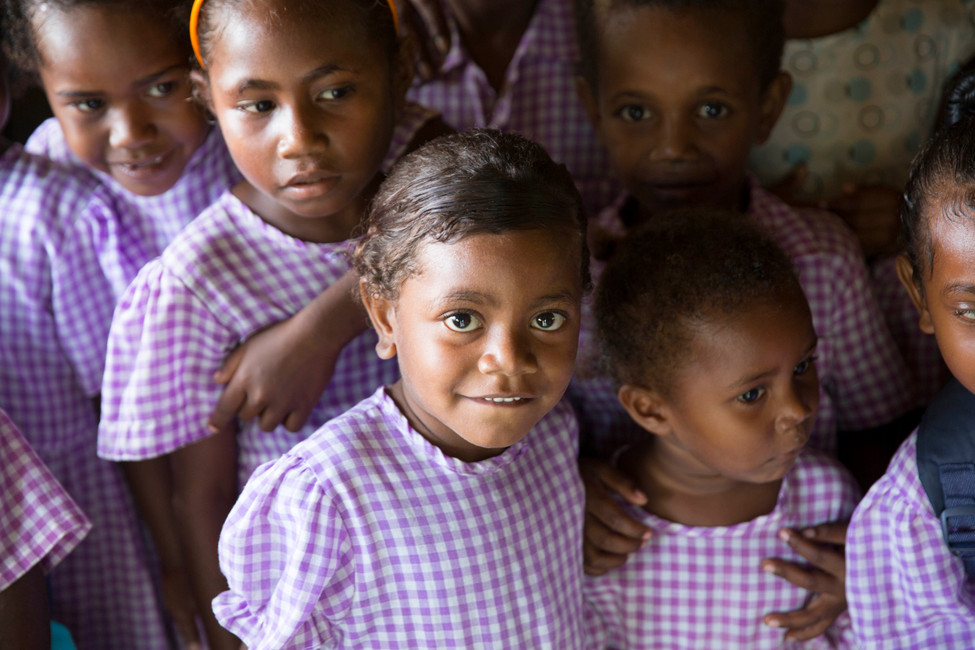
The Kokonut Kindergarten
Every week, the parents of children at a small kindergarten in Fiukwai, Malaita, Solomon Islands have to pay fees to keep their children in the school.
But even though the children come from low-income families, their parents have no problem paying for their children’s education.
This is because the ‘fees’ are paid in coconuts. And it just so happens Fiukwai has more coconuts around than the villagers can keep up with.
St Francis’s Early Childhood Education Centre, which started in February this year, was the brainchild of Fiukwai resident Joses Naumai.
Joses said he saw there was a need for the kindergarten last year.
“We had around 40 pikininis, aged 3-6 years, who were staying in the village, but had no education,” Joses said. “I talked to the village members and asked if it would be a good idea to start a kindergarten. It’s the only way we could really help the children.”
Everyone liked the idea, Joses said, but the parents told him they weren’t sending their children to other, bigger, schools because they couldn’t afford the fees. “So I told them, ‘That will be no problem! If you just bring 20 coconuts a week, that will bring money to the kindergarten’”.
“This made people very, very happy,” Joses said, “There are so many coconuts here that these families could not possibly use them all themselves. I take these coconuts and use them to make virgin coconut oil.”
St Francis’s started in February this year in a community hall, despite receiving no funding. There are around 40 children registered, although Joses says it is continuing to grow. “I have seen it has really helped families,” he said. “Now, parents are even coming in with their children to read with them and participate in classes.”
Joses is the proud owner of a Kokonut Pacific direct micro-expelling (DME) system that produces healthy virgin coconut oil by grating, drying and pressing fresh coconuts (some of their school ‘fees’).
He is part of the Virgin Coconut Oil Producers Association, which works alongside Kokonut Pacific Solomon Islands to improve the livelihoods of rural villages, like Fiukwai, around the Solomon Islands.
“The village is very proud of the DME and what I am doing with it,” Joses said.
He has seen the DME boost income, supporting around 200 people in the Fiukwai area since it started in 2007. The DME currently employs 12 full-time workers, plus 15 growers. According to him, around $14,000 (SI$) per month goes to the growers.
Currently St Francis’s employs five teachers: three women and two men. “I saw they had no employment, so I decided to engage them to teach,” Joses said. He sent them to train with teachers at nearby schools before offering them work at the kindergarten.



Be a part of their story
#ihaveanewlife #realvillagepeople